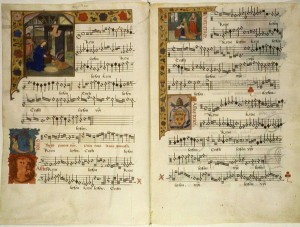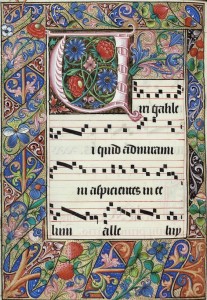Just from the publisher the first copy of my new book . It is in my hand .
Hildegard of Bingen: A Poetic Journey .
So exciting
Already up on the web site for purchase.
www.ginninderrapress.com.au
Internationally it is available on Amazon Books


Just from the publisher the first copy of my new book . It is in my hand .
Hildegard of Bingen: A Poetic Journey .
So exciting
Already up on the web site for purchase.
www.ginninderrapress.com.au



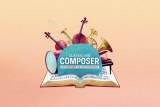
Our ABC classical radio, a few months ago, put out a call for listeners to vote for their most loved Composer. Well you know Beethoven, Bach, Mozart, Tchaikovsky, and Handel will be there as Vivaldi and Elgar and Chopin will be there too.
Of course I voted for Hildegard as my No. 1 and Mahler as my 2nd most loved composer . We waited a few months for the tally and over last weekend – a National Holiday Weekend in Australia, we prepared to hang around house cooking, gardening, reading knitting , to listen to magnificent music as we counted down from 100.
Many of the great names fell all day Saturday. Their gorgeous music came lifted us and left. Composers fell away . . . Grieg, Ravel, Haydn, Wagner, Bizet and it took another sleep .
On Sunday with the count 40 and down . . . Hildegard arrived at 33. There was an eruption of excitement. There was cheering all around our apartment. . . friends were texting me and we popped the champagne ( a bit later) To think the people have taken her ecstatic, heavenly music to their hearts.
You can still hear it all on www.abc.net.au/classic – 100
To think her music was silenced by the hierarchy for nearly a year, the year before she died and now today, 900 years later she is listened to and loved by people all over the world and today in the ABC Classical Countdown of the top 100 most loved Composers of all time Hildegard rates 33rd and one of the few woman.
It is extraordinary that the voice of Hildegard has returned at this time of history with her music, her health and healing , her understanding of the environment and her call for our need to be stewards and custodians of our Mother Earth for she is our life line.
For me Hildegard is a woman who sees through hypocrisy and cannot abide with the patriarchy of church or state . She acts as if she is doesn’t see it. She acts on her intuition and what her inner voice tells her. To do this of course she had to listen and listen and listen.
Listen to the heart beat of the earth and the thrum of the tree and the wind and the messages that are with us constantly in nature and in our very being.
My story of her life written in poetic verse is with the publishers Ginninderra Press and will be launched in a few months.
And hence I am thrilled to see Hildegard of Bingen named
and for all the world ,
well for all of Australia,
(at least but I know my daughter in England was jumping up and down with joy and some Hildegardeans in America and a few in Germany were filled with joy )
to stop and listen to her exquisite music today.

For Hildegard, health and healing sought balance in all aspects of life. She honoured interconnectivity – of spirit, mind, body; of humanity, the earth and the universe. This is the heart of Hildegard’s healing philosophy, though not unique to her. Buddha emphasised the middle way as the path of moderation and the path of wisdom. The Tao always reminds us to move towards finding the balance as with dark and light.
What would eventually set her apart, however, was how she chose to embrace the middle ground set forth in the Rule of St. Benedict. This enabled her to engage in her individual passion while serving the stringent institutionalism of the Church.
It was within this middle ground that she pressed her will and intellect into the interconnectivity of the physical and spiritual worlds, culminating in her foundational work in natural medicine.
From her early years Hildegard worked with garden plants and herbs for healing. This can be seen in the following poem when Jutta is dying. ( from Book 111 of Hildegard of Bingen: A Poetic Journey)
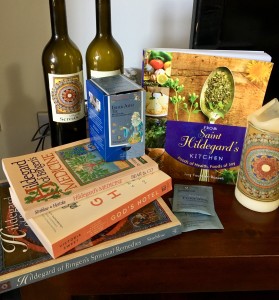
Some of the books of the 21st century I have that are inspired by Hildegard of Bingen
Last Swallows
Hildegard’s world stands bleak,
bare. The last swallows long gone.
In cold light
dew drops hang on a blade of grass.
Lingering dread
knots her stomach.
She enters the anchorage
sighs deeply,
lights Advent’s second candle.
Its smoky glow
reveals the pale beauty of Jutta’s face,
she lies stilled.
Hildegard puts down some bowls,
kisses her forehead.
Jutta, my mother,
your ascetics are too harsh.
Your imprisoned cell here
is mortification enough.
Let our spirits give praise
with rhythm of music,
with song of jubilation.
Our God, the Just One, is she who offers life
with all its bountiful gifts.
She nurtures Jutta,
urges with sips of fennel tea,
warmed broth, mulled honeyed wine.
Oil from the olives, freshly pressed,
she heats over the smouldering hearth,
gently massages Jutta’s hands and feet.
Her flesh wasted.
Jutta has her mind only
on heaven,
to be remembered as a saint.
Hildegard kneels beside her
holds her cold hands,
listens to her trailing breath.
She loves this broken woman.
Colleen Keating
from Hildegard of Bingen : A Poetic Journey
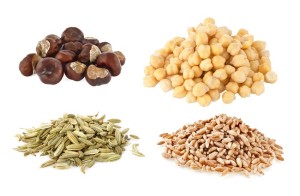
Later Hildegard came to understand everything is given us
for our wellbeing. She would write later about the interconnection of all things.
There is no creation that does not have a radiance,
be it greenness or seed, blossom or beauty,
it could not be creation without it. Hildegard of Bingen
In 1150, Hildegard left the Monastery at Disibodenberg and led her sisters to set up the new Abbey at Rupertsberg. There she embarked on deep and valuable work in lifestyle, nutrition, and well being for her sisters. Word spread around the of her healing ways.
When Hildegard left the Monastery at Disibodenberg and led her sisters to set up the new Abbey at Rupertsberg in 1150 she embarked on deep and valuable work in lifestyle, nutrition, and well being for her sisters. And word spread around the Rhineland of her healing ways.
Hippocrates, the father of modern medicine, declared “let food be thy medicine, and medicine be they food.” The concept of food as medicine is ancient. Hildegard was one of the first in Mediaeval Western civilisation that connected health and nutrition.
Food as medicine is the core for Hildegard of Bingen. Her notion that a kitchen is also a pharmacy reflects a common theme among ancient traditions of healing: food is the first medicine. Medicines at the time were all plant based or specific combinations of foods prescribed according to their unique healing qualities.
Hildegard’s original work, was eventually split into two treatises, Physica and Causae et Curae –
“Physica” represents the history of natural remedies, which Hildegard had intended for public use. and in Causae et Curae Hildegard describes healing and treatment methods using humoral techniques along with traditional creation teachings, combined with ancient mystic Cosmologies.
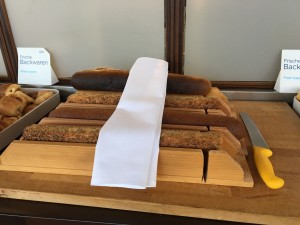 i
i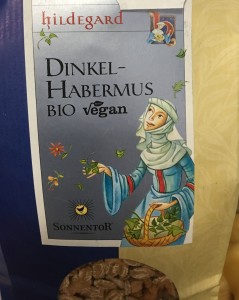
The wonderful selections of breads at breakfast, in our Bingen Hotel overlooking the Rhine. It felt very much as if hildegard is present.
Today especially in Germany, Hildegard’s healing treatments have found a resurgence in holistic health and wellness.
Within this renaissance Hildegard’s philosophies around health and nutrition provide concrete ways to achieve a healthy spirit, mind, and body, which ultimately lead to a healthy lifestyle. From this healthy lifestyle we harvest many benefits, not the least of which is avoiding illness and unnecessary suffering.
“Hildegard’s music is not easy. It is demanding with the breath…there are even a couple of songs that have two and a half octave ranges, which is extreme for music. In our day, we don’t even have most music like that.” ~ Linn Maxwell on Saint Hildegard’s music
This poem is set in Hildegard of Bingen’s new Abbey at Rupertsberg near the town of Bingen at the junction of the Nahr River and the Rhine in 1151. It is before her new Church is completed and before her sisters sing in flowing silk robes their Opera Ordo Virtutum written by Hildegard (believed to be the first opera written by a woman in History. This poem is an extract from my up and coming writing on Hildegard of Bingen: A Poet Journey
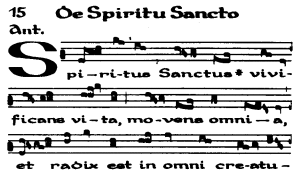
Unearthing Heaven in Music
Unearthing Heaven in Music
Seamless fold of seasons
Not so seamless, human endeavour.
Life is still comfortless,
harsh, rough.
Hildegard is invigorated
by harmonies of sound,
sees music in the dawn,
dance of light on the hills,
in the caress of the wind,
shape of the clouds
sound of the entwining rivers,
the patter of rain
chatter of verdant tendrils of vine.
Music sings in her mind
fills her writing
defines her day.
In giving voice to her poetry
Hildegard bursts into song.
Words of Divine Light,
sounds from the heavenly spheres,
O fleeting soul, be strong.
Clothe yourself in the armour of light.
You are surrounded
with the embrace of divine mysteries.
She sees creation, a symphony
of joy and jubilation,
a great chorus
of the cosmos itself.
She sings with her sisters.
Her sisters sing with her.
Singing softens their tired
discouraged hearts
like blossoms soften stone walls.
In the garden with her sisters around her
she draws lines with a stick on the earth
dots out the shift of sounds,
and with the stick as a baton and pointer
she teaches them her new music.
Their eyes shine.
Her antiphons and canticles
enrich the Divine Office.
Richardis leads, her voice ethereal,
the sister join, words and rhythms soar,
breathless notes, thin higher and higher.
The unfinished church
embraces their song,
a new heaven and new earth.
